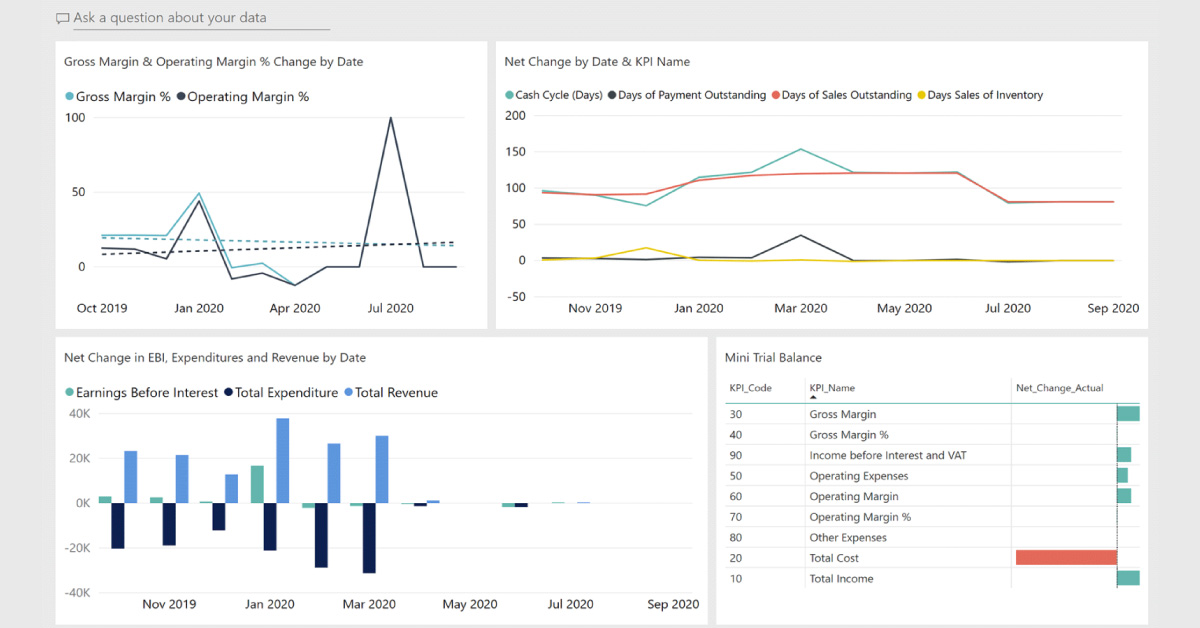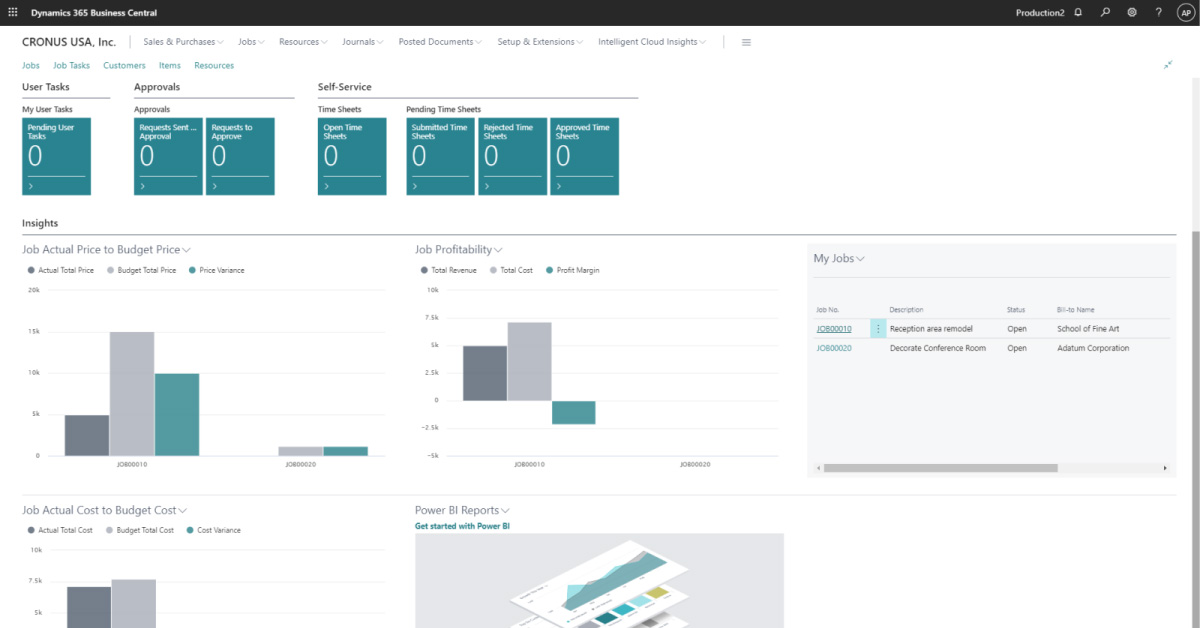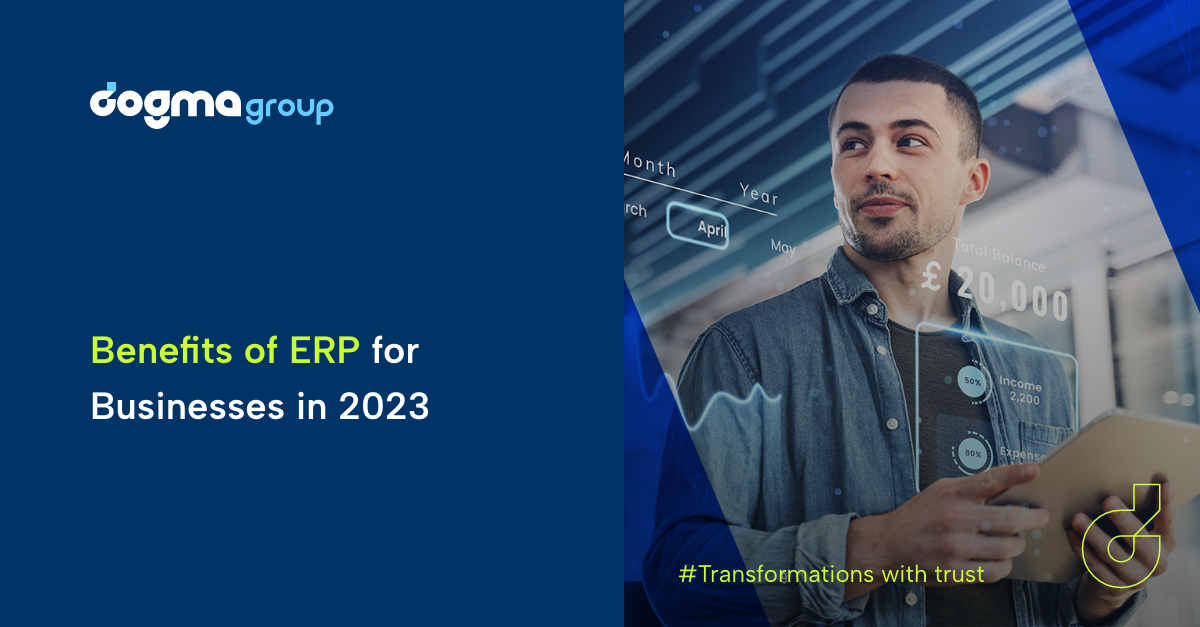Know about all the different advantages of implementing ERPs in your organisation
Picture a scenario.
The first quarter is coming to a close and you need to submit a quarterly report to the company. Some of your employees are digging through numerous spreadsheets to gather data; others have just spent an entire day counting inventory stored at various locations and may need the rest of the day to track down incoming shipments that are already behind schedule. Finance people are manually tallying payrolls by hand, and it will also take them until the next day to generate forecasts. And, you are greeted each morning by a never-ending list of emails – some from your customers, a few from the compliance officer, a bunch of “access requests” that you should not be getting in the first place, and a whole slew of newsletters and marketing emails that just overlay all the important ones.
Sounds familiar? You’re not alone.
Every organisation comes to a point where their existing software and legacy systems become redundant or at least inadequate for them to move ahead. From there on, inefficiencies start to emerge in all business processes like finance, manufacturing, operations, human resources, supply chain, distribution, and customer service.
And, that’s when you’ve got to realise that you need an ERP or enterprise resource planning system. Else, you will be limiting organisational growth by keeping your leaders from gaining accurate insights, making informed decisions, and optimising operations.
But that’s just putting it mildly.
Allow us to break down just what ERP systems are, how they work, what they can do for your business and how to choose the right one.
What is an ERP system?
It’s a business enablement technology that allows you to improve the way you allocate resources across your organisation. By gathering and organising business data through an integrated system into a shared database, ERP systems provide valuable business intelligence. Based on that, ERPs can add customised modules to automate and integrate core business processes across finance, human resources, manufacturing, supply chain, and sales for accurate tracking, improved forecasting and faster decision-making.
The term ERP has been passed around since the 90s and if you happen to have one of those legacy ERPs in place then you know the common ways how these systems can assist different departments.
Typically, ERP systems help finance departments to eliminate errors and duplication, and ensure compliance, thereby, increasing profits. HRs can also rely on the centralised ERP data and integrated human capital management (HCM) systems or human resource management (HRM) modules for workforce and talent management. Workforce management involves tracking times and attendance, handling leave requests and scheduling whereas talent management includes recruitment and onboarding of new talents, training and growth, planning succession and benefits, and ensuring compliance.
As for manufacturing, these systems come in handy to track, schedule and expedite product manufacturing and delivery. Additionally, ERP systems optimise inventory management and logistics tracking and streamline the supply chain for faster operations. Moreover, ERPs also consolidate information about products, promotions and offers, boost both retail and online sales, and optimise the customer experience.
But, if you are new to the concept of ERPs and have been wondering just what they can do for your business, here is an in-depth explanation.
How do ERPs benefit businesses
1.Centralised Data
Most of the benefits of ERPs come from their ability to collect data and information from all departments and centralise everything into a single database, which can be shared with relevant stakeholders across your company. This way, valuable information doesn’t remain scattered across several locations so that your employees can easily find what they need.
ERP systems also eliminate the issue of duplication and inconsistency by standardising the formats in which critical data are recorded. What this means is you will have more visibility across your company and improved productivity. Plus, you can ensure data security and compliance along with a great level of customisation, mobility and scalability. Moreover, you will enjoy other ERP benefits like cost savings, streamlined workflows, operational efficiency, real-time reporting and accuracy in forecasting.

2. Data Security
The way businesses have become reliant on data these days is unprecedented. And why not? It is based on the business data that decision-makers allocate resources and take necessary actions. As such, all data needs to be consolidated into a single shared database, integrated into various business software and tools, and secured against duplication, unwanted alterations, cyberattacks and disasters.
A cloud-based ERP solution can take care of that for your business. As the first level of protection, it centralises all data in one place with high-level encryption. It then assigns roles and permissions to limit who can view and edit the information. That’s the second level of security. Lastly, it stores them in multiple servers at remote locations, thus, creating redundancies against a single point of failure.
Top ERPs like Microsoft Dynamics 365 send you regular system updates to make your ERP solution future-proof. Additionally, Business Central in the Dynamics 356 takes care of all your data safety concerns with a built-in security system designed to protect your database. Microsoft invests over a billion dollars every year to keep its Dynamics 356 suite up to date and future-proof.

3. Improved Productivity
When your staff are stuck with old systems that require manual keying and are busy performing tedious routine tasks, they will surely become less productive.
By automating key business processes across multiple departments, modern ERP systems drastically improve the productivity of your team. As most of the repetitive tasks are automated, your staff will have more free time. They will find information a lot faster and have more visibility into what’s happening within your organisation, thereby, empowering them to complete their tasks with much ease and in less time.
This also means you don’t have to keep recruiting more people as your business scales up since a smaller number of overheads can accomplish a lot more with the help of ERP systems.

4. Compliance
As your business grows, it gets increasingly difficult to remain compliant with different industry regulations. ERP systems are designed to assist you in consistently meeting those complex compliance obligations, both within and outside your business.
With centralised data that are up-to-date, error-free and easily accessible, ERP systems shrink the amount of work that goes into staying compliant. Likewise, the financial tools in the system can streamline complex accounting tasks and routine billing cycles without errors and duplications, and also adhere to financial standards like IFRS.
Additionally, customisable reporting tools within ERPs help in tracking compliance and changes in standards and regulations so that the system can make necessary adjustments. All this makes your business transparent and much more auditable.

5. Visibility
Once ERP systems go live, they provide broader visibility into all your business processes and departments. This enables all relevant stakeholders to keep tabs on what’s happening and respond promptly to any new developments. Having visibility is quite important for leaders as it allows them to get real-time details from all departments and teams, which, in turn, empowers senior executives to make quicker, better managerial and strategic decisions. This avails you with business intelligence and your organisational workflow with agility.
As for your teams, visibility into projects and processes streamlines inter-departmental collaboration and helps everyone fulfil their due responsibilities on time.
6. Scalability
Having a well-defined ERP system avails you with an option to expand and scale your business without having to worry about technological limitations. Could-based ERPs allow you to incorporate all major and minor changes in the processes along with accommodating increasing numbers of staff and the data and information they need to handle.
You can use those ERP capabilities that your business currently requires and always add more functionalities later on as your organisation grows, which is a plus point. What it means is that your ERP system will be able to scale seamlessly along with your business without your technological expenses exceeding your budget. Could-based ERP systems, for instance, offer flexible scalability so that you can start small and go on to add more users and modules as your organisation grows or changes.
7. Mobility
Many businesses are using smartphones and tablets for daily operations. People are increasingly relying on them to perform many of their tasks. As such, modern ERP systems have become mobile-friendly so that the individuals on the field or managers who constantly travel can easily access information from and record data into the cloud-based systems.
The benefit of using ERP systems on mobile devices can speed up a lot of tasks such as spending requests and approvals, remote visual communication, and real-time tracking of details like cash flows, in-transit inventory, or sales data. It really adds to organisational productivity and efficiency when your employees are no longer bound to a desk and can work remotely.
8. Cost Savings
Significant savings on overall cost is another lucrative advantage of implementing ERP systems for many organisations. Automated business processes and integrated software modules eliminate most of the administrative and operational costs associated with manual work.
Timely financial reports assist in tracking and projecting costs, returns and wastes of funds as well as materials so that management can make smarter strategic decisions to lower costs and maximise returns. You can quickly locate the source of increasing expenses and keep your company from unnecessarily bleeding cash. Moreover, you can improve your organisational planning to keep a tight schedule and reduce delays. Additionally, with a proper ERP system in place, you can ensure on-time delivery of products, and prevent over and under-production of resources, thereby, keeping costs in check.

9. Collaboration
Thanks to all these ERP benefits, you will experience an elevated level of collaboration among your departments. Consolidated database and integrated system provide greater visibility, which means your team members are all aware of what the other person or department is working on. This not only keeps them informed about what’s going on but also creates opportunities to help each other and seamlessly collaborate to complete tasks.
ERP systems help identify and eliminate time-intensive and duplicate processes between departments and eradicate communication gaps between your teams. Your teams and departments will no longer work on their own creating departmental silos and work ecosystems only accessible to them. Instead, every individual will get to communicate and contribute to ensure daily procedures are optimised to maximise profits.
10. Flexibility
As your business evolves, so will the processes and workflows. What has been working now might not work later, and you will have to innovate accordingly. Top ERP systems are designed to be flexible enough to support all your unique processes and workflows not only at the present but also a long way down into the future.
During ERP implementation, experts map out all your processes and customise the system to seamlessly support all business functions as well any operational requirements you might have specific to your organisation. And, as your business grows, the ERP architecture is set up in such a way that it can accommodate even the most complex of processes so that you do not need to look for a new solution later.
11. Better Customer Service
Great customer service goes a long way toward satisfying your customers and retaining them for repeat business, and also for increased referrals so that your market share grows more than that of your competitors.
ERP systems can gather and avail all customer information in one place for quick access including customer details and contextual awareness about the customer history so that your employees can provide a more personalised and satisfactory response to customer queries. This also helps with faster troubleshooting and quicker response to all your customer problems, especially with the apps and tools for customers to self-serve.
What’s more, you can keep an accurate and instant count of customer orders and make sure deliveries are on time. Plus, you can also keep track of promotional offers and customer benefits along with the inventory count and restocking needs so that production and sales work in tandem for superior customer service.

12. Organised workflow
It’s quite common for departments to perform tasks in certain ways due to habitual reasons rather than for efficiency, particularly if it involves manual labour. What this does is create discrepancies and bottlenecks in BAU that delays even the simplest of tasks.
ERP systems can eradicate these workflow issues to organise and standardise workflows between different departments and work sites for the best and most efficient outputs. During ERP implementation, the experts you hire map out all your business processes to evaluate and figure out the best way to complete tasks within the new ERP system. Consequently, unnecessary and redundant processes are eliminated, best practices are established, and all processes are improved as well as integrated so that you can get things done faster than everyone else.
13. Real-time Reporting
The prompt and customised reporting ability of ERPs is another valuable benefit that businesses can leverage. All organisational functions like finance, HR, marketing, procurement, inventory, manufacturing, supply chain, distribution, and, but not limited to, customer service can generate reports and analytics in real-time and share them across relevant departments.
That helps your leaders to keep an eye on the performance of each department and determine what’s working and what’s not so that you can calibrate your strategies and decisions in real-time. That is critical because if it takes days of manual effort for you to generate a single report, you are already two steps behind your competition, and hindering your organisational growth.
Another benefit of ERPs in terms of reporting is that they are flexible enough for you to add, design and evaluate KPIs that specifically apply to your organisation. Apart from KPIs, you can also come up with other metrics to analyse departmental and individual performance within ERP systems.

14. Accurate Forecasting
Many organisations suffer because they are often not fully prepared for what’s coming. And, that’s because they are not able to generate accurate forecasts and projections. But with a well-designed ERP system, it’s possible to achieve a higher level of accuracy when making future projections.
ERPs can store and analyse a ton of historical data and factoring in the current market information, they can predict the level of future sales, demand, revenue, expenses and need for resources with great precision.
With more accurate forecasting, you are informed about just how much your sales are going to go up. Based on that information, you can order raw materials and hire staff accordingly. Plus, you can also make better revenue projections, which allows you to check and cut back unwanted spending. In the end, you will be able to optimise the earnings of your business and lower its costs significantly with accurate ERP forecasts and projections.

15. Operational efficiency
Enhanced searchability and automation for everyone means that tasks at all levels of operations are greatly enhanced and less time-intensive. That’s profitable as you can lower your operational costs on one hand, and on the other ensure superior customer service by shortening the service time, thereby, meeting their needs faster and making their experience with you more satisfactory.
ERP systems can pinpoint the most cost-effective as well as cost-ineffective operations. With that knowledge, you can cut down on the products and services that generate the least returns and instead channel your resources into those that are most profitable for your business. Having this level of operational efficiency enables you to work faster, save more money, and generate larger returns.
How to select an ERP system?
Owing to all these benefits, your business can really do wonders with a good ERP system. But it must still be really exhausting to evaluate and pick the right one for your business, particularly when there are so many ERP systems out there in the market all claiming to be the best. So, let us help.
A well-defined ERP system typically comes with these prominent features:
- Fit for growth
- Automation and data centralisation
- Adapts to your needs
- Flexibility to customise
- Integration with CRMs, HRMs and other industry systems
- Cloud-based and mobile-friendly
- Seamless connectivity and access
And, Microsoft Dynamics 365 comes with all these features and more in a very well-structured fashion. Not only does it break down data silos and foster collaboration, but it also brings business intelligence into the picture. Consequently, you will make better, more informed decisions and generate a greater ROI with Dynamics 365. It comes with modules like Dynamics 356 Finance, Project Operations, Business Central, Supply Chain Management, Intelligent Order Management, Commerce, and Fraud Protection to support various departmental operations. This way, Microsoft Dynamics 365 is more than just an ERP solution for businesses of all sizes and scopes.
Ready to take the next step?
With more than a decade of experience in ERP technology implementations and as gold partners of one of the leading ERP providers, Microsoft Dynamics 365, we can offer the best advice and assistance to help make your ERP project a success. You can call us at 01296 328 689 or email us at info@dogmagroup.co.uk





